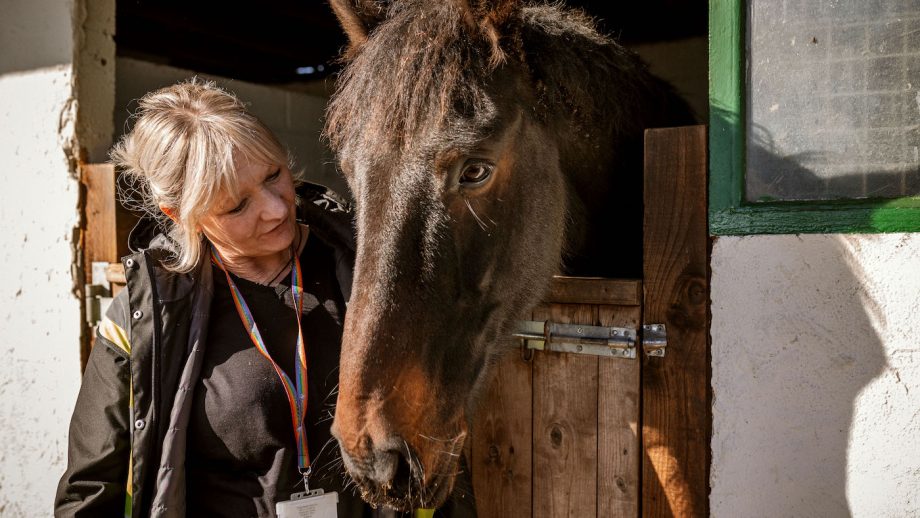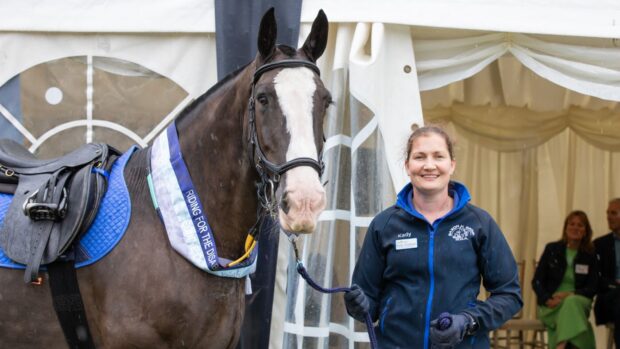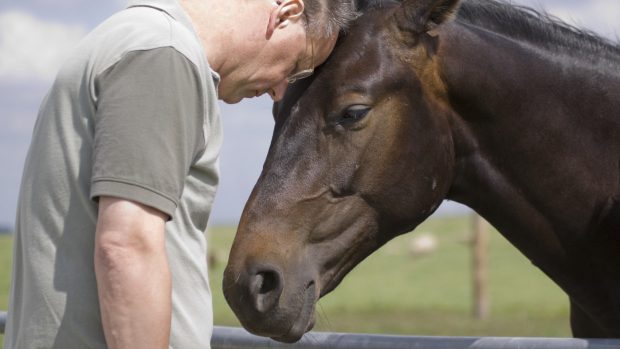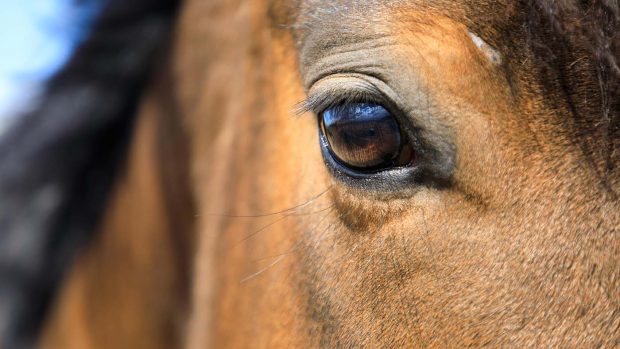Strong steps forward are being made in helping bring equine-assisted therapy to more people outside the equestrian world.
Research, collaborations and addressing the barriers to equine-assisted therapy being more widely accessed or “prescribed” are among the recent developments.
The science is there and many already appreciate the benefits horses can have – but the hope is to drive awareness and eventually help create formal links to increase access and funding to equine-related services.
The Human Equine Interaction Register (HEIR UK) launched in March 2022 and is “delighted” with its progress in its first eight months.
“We have 50 organisations registered and some more in the pipeline,” HEIR UK project manager Anna Collins told H&H.
“We’re really pleased that we have a good, broad mix of equine-assisted training and equine-assisted therapy.”
She added that they are seeing “all kinds of different” involvement of horses across the services, a broad range of types of organisations registered, and people involved.”
To join, organisations must submit evidence confirming they meet the criteria for professionalism, equine welfare, service provision and user engagement, benefits and impact, and governance. For example, proving they have satisfactory safeguarding, health and safety, and insurance in place.
Ms Collins explained HEIR UK’s intention is “we don’t want to refuse anyone admission”. But by having set standards, they are able to go back to any organisations that do not meet the criteria and advise them what they need to do to fulfil these before they can be added to the register.
It’s hoped the register will help to raise awareness of equine-assisted therapy and learning beyond the equestrian world, and dispel “pony-patting” myths by highlighting the real positive impact it can have. This, too, is important when it comes to looking at removing barriers to “social prescribing” of equine-related services.
“What the register will do is help to demonstrate the impact the work can have and the real difference it can make,” added Ms Collins.
Francesca Compostella, vet and aftercare project manager at the British racing industry’s Horse Welfare Board (HWB), told H&H the development of HEIR is the “fundamental next step” in bridging the gap to the wider world.
“What we find is that horsey people appreciate the benefits,” she said, expanding on the endorphin releases from exercise and the benefits humans feel from being horses.
“We know that. It’s how do we make sure that the wider health[care] audience, so your average GP, understands that, and how do they then have the confidence to request funding. And that’s only possible when you have a quality assurance, which is what HEIR is trying to do through the HETI [Federation of Horses in Education and Therapy International journal]. So you have the right level of training, you have regular checks, you’ve got that level of communication, everybody is updated through the sharing of journals and articles on the latest science behind it.”
Dr Compostella added that the HWB supports the register “wholeheartedly”.
“We see it as a real opportunity for the horses to find a niche in a role that they can have for the community – they already serve that and it needs to be promoted better, so we are definitely behind it,” she said, adding that the HWB is supporting aftercare centres in achieving the HEIR accreditation, as well as the work and research charity Racing To Relate is doing in this area.
The Riding for the Disabled Association (RDA) is involved in a number of collaborations with non-equine-related organisations, helping to bring the benefits of horses to more people.
One of its most recent partnerships is with Mind in Bradford, an independent charity affiliated to national mental health charity Mind.
A six-week pilot project was run by Mind in Bradford and Cliff Hollins RDA Group, which operates from the Cliff Hollins Riding School, in September and October. The pilot’s success means another project is in the pipeline.
The six participants mostly had no previous experience with horses or ponies, and learnt how to handle and care for equines.
“The sessions have been a huge success and there has been lots of positive feedback around how the staff at the stables have shown care and empathy both towards the clients attending and the horses they are looking after,” said Phil Woodward, Mind in Bradford service manager. “Two of the clients have signed up to be volunteers and there has been an increase in self-confidence and confidence around the horses.”
Charities Greatwood, and Racing Together, British racing’s community engagement arm, have run programmes over the past two years measuring outcomes of former racehorse Ouzbeck’s visits to a care home.
“We were able to run the programme again this summer at the same care home, but with a more focused cohort of seven residents for data collection,” Greatwood’s education and wellbeing lead Alex Shaw told H&H.
“We are looking initially at the impact of equine interactions on care home residents, but also at the suitability of former racehorses for such activities. Overall, the anecdotal feedback has been very positive and the scales used to measure impact have shown some improvements.”
Staff feedback stated that the visits “certainly improved the quality of life and emotional wellbeing of the residents”.
“Ouzbeck’s visits certainly helped people who suffered from anxiety and depression,” said the feedback. “They had something to think about and talk about. Some had loved and associated with horses in their past, and it brought back positive memories and feelings, while for others it was a completely new thing and they were proud of what they were able to achieve.”
You might also be interested in:

Subscribe to Horse & Hound magazine today – and enjoy unlimited website access all year round

Register planned for equine-assisted therapy providers

Retired racehorse brings joy to elderly in new heartwarming scheme

‘Tea with a pony’ sessions have power to help those with dementia
“Someone described dementia to me as, ‘it’s like a rhino hitting a bookcase – all of your experiences are on
Horse & Hound magazine, out every Thursday, is packed with all the latest news and reports, as well as interviews, specials, nostalgia, vet and training advice. Find how you can enjoy the magazine delivered to your door every week, plus options to upgrade your subscription to access our online service that brings you breaking news and reports as well as other benefits.




